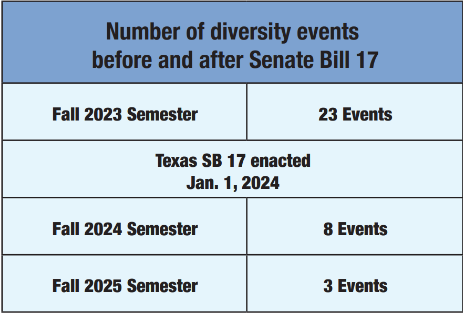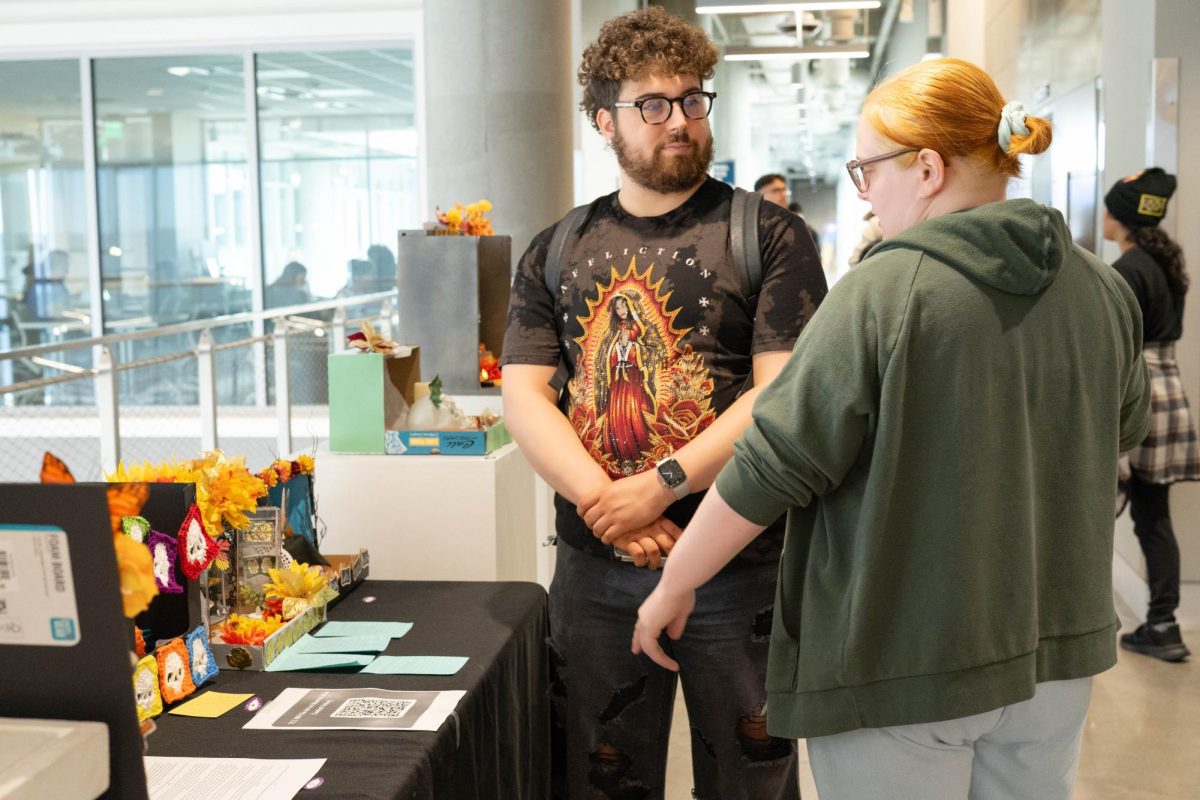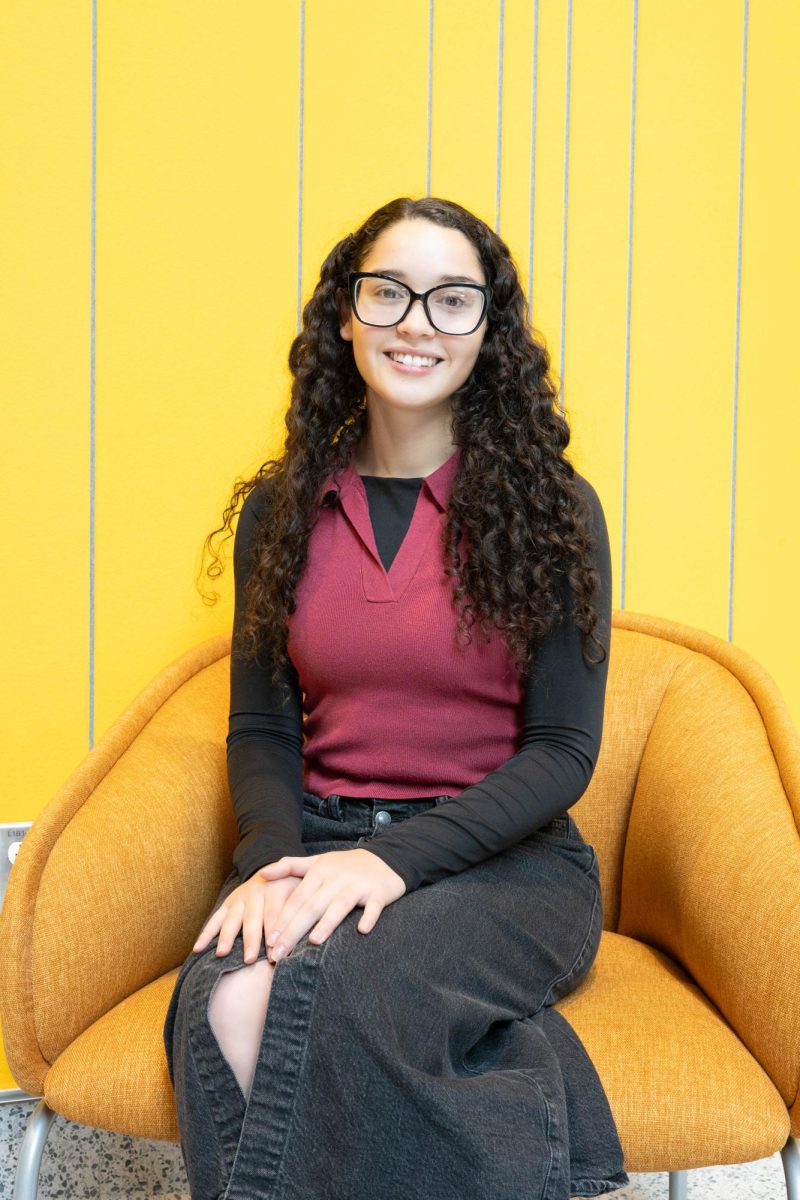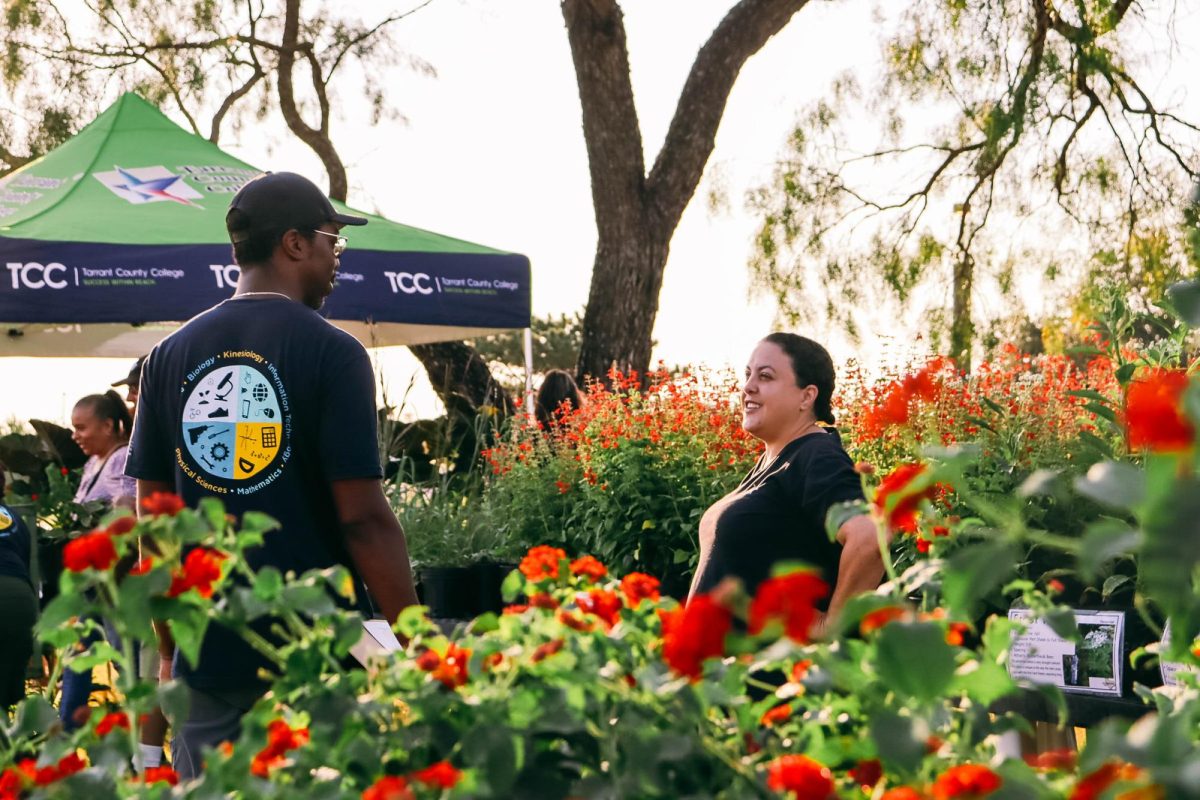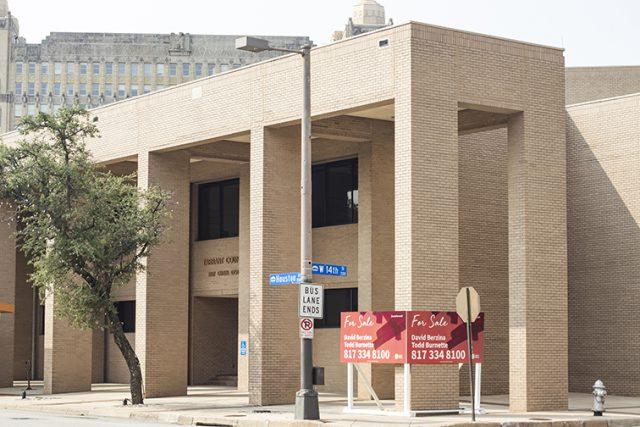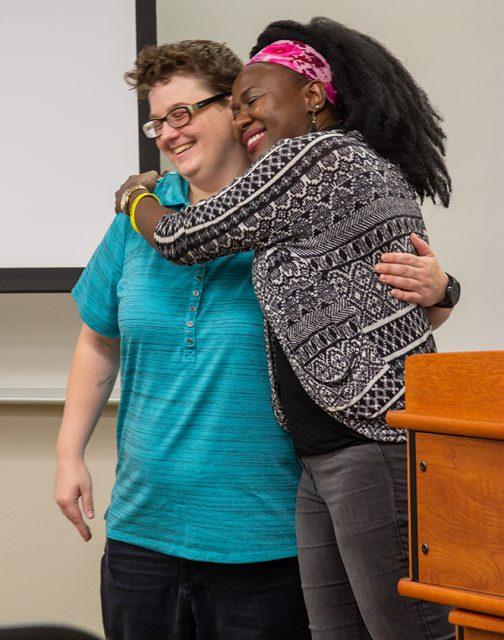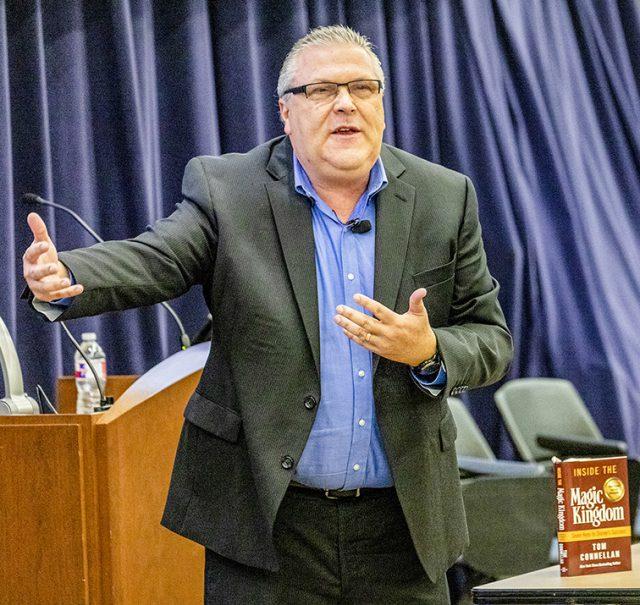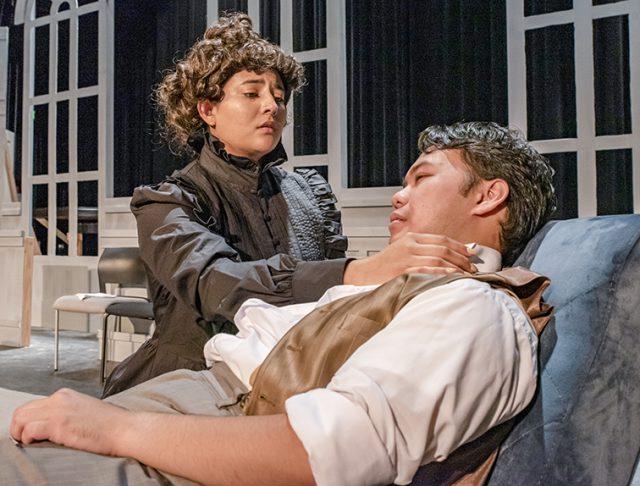
Photo by Joseph Serrata/The Collegian
By Joseph Flores/reporter
A TCC assistant professor who visited over 100 countries spoke to NW students Sept. 18 in the Walsh Library and showed them that there is a bigger world out there and encouraged them to go see it.
Alejandro Garza, who advised students to be travelers and not tourists, said his first experience to Mali, one of the poorest countries in the world, was a game changer.
“I wanted to see life from a different perspective,” Garza said. “People in Mali were so happy even though they didn’t have much.”
After returning to Texas State University in San Marcos, he was amazed that students would complain of being bored.
“You have a car and plenty to eat,” Garza said. “How can you be bored?”
Born and raised in Mexico, Garza spent many vacations of his youth in his father’s home village picking avocados.
These experiences helped shape the way he traveled because his childhood vacations were unorthodox compared to a traditional American or upper class Mexican family.
Turned down as a Peace Corps volunteer when he was younger because he lacked U.S. citizenship, Garza was allowed to join a missionary delegation to Mali and Guinea which led to his traveling addiction.
His mother once called him “sick in the head” for wanting to join a group traveling from Cairo to Cape Town. He didn’t go on that trip, Garza said.
That wanderlust, Garza said, helped him connect with others at a level most tourists never see.
“If you are traveling in Japan and are told to take the 10:58 a.m. train, make sure it isn’t the 10:56 a.m. train,” he said, explaining that he got on the 10:56 thinking he would play it safe and be early, but ended up going to an entirely different city.
He contrasts this experience with one in Sri Lanka where the ticket representative at the train station told him the train would arrive “later.” When Garza pressed him for a more precise answer, the ticket master asked “what part of later do you not understand?”
Garza waited hours for the train to depart.
When traveling in India, the truck driver who looked like the best bet to get Garza to his destination simply asked him how much money he had. Garza said he had 430 rupees. The driver took the money and then took him to within ten minutes of his destination.
No stranger to the potential dangers of traveling, Garza advised students to look confident, even if they aren’t. He follows this with a story of being followed by two men in Berlin.
“I just walked faster and acted like I knew where I was going,” Garza said. “I went straight into a shop and the men just walked on by.”
Garza spoke about his travels in Spain, and how the way he traveled helped him learn more about the culture. He strongly recommends students do the same in their travels.
“I avoid rich Mexicans and Americans because I want to learn about the culture.” Garza said. “I want to learn from the locals and not join others who complain about the bus driver not speaking English.”
Tina Ross, associate professor of speech, was the event organizer said that the goal of this event was to show different cultures.
“Alejandro talked about this so well,” said Ross. “How other cultures see money, poor or rich. Sometimes we forget the whole world is out there.”
Garza not only spoke about his various travels, but taught students how to travel to best learn from your experiences.
“I learned how to how to travel, and not be a tourist,” NW student Madison McPherson said. “How it’s better to submerge yourself into the culture.”
Garza talked about a trip he made to Sydney, Australia where he went to a bookstore to get a tour guide book. Instead, the bookstore manager told him he had a perfect book for him and handed Garza “The Silent Traveler.”
Garza told the students that this is his prized position.






















